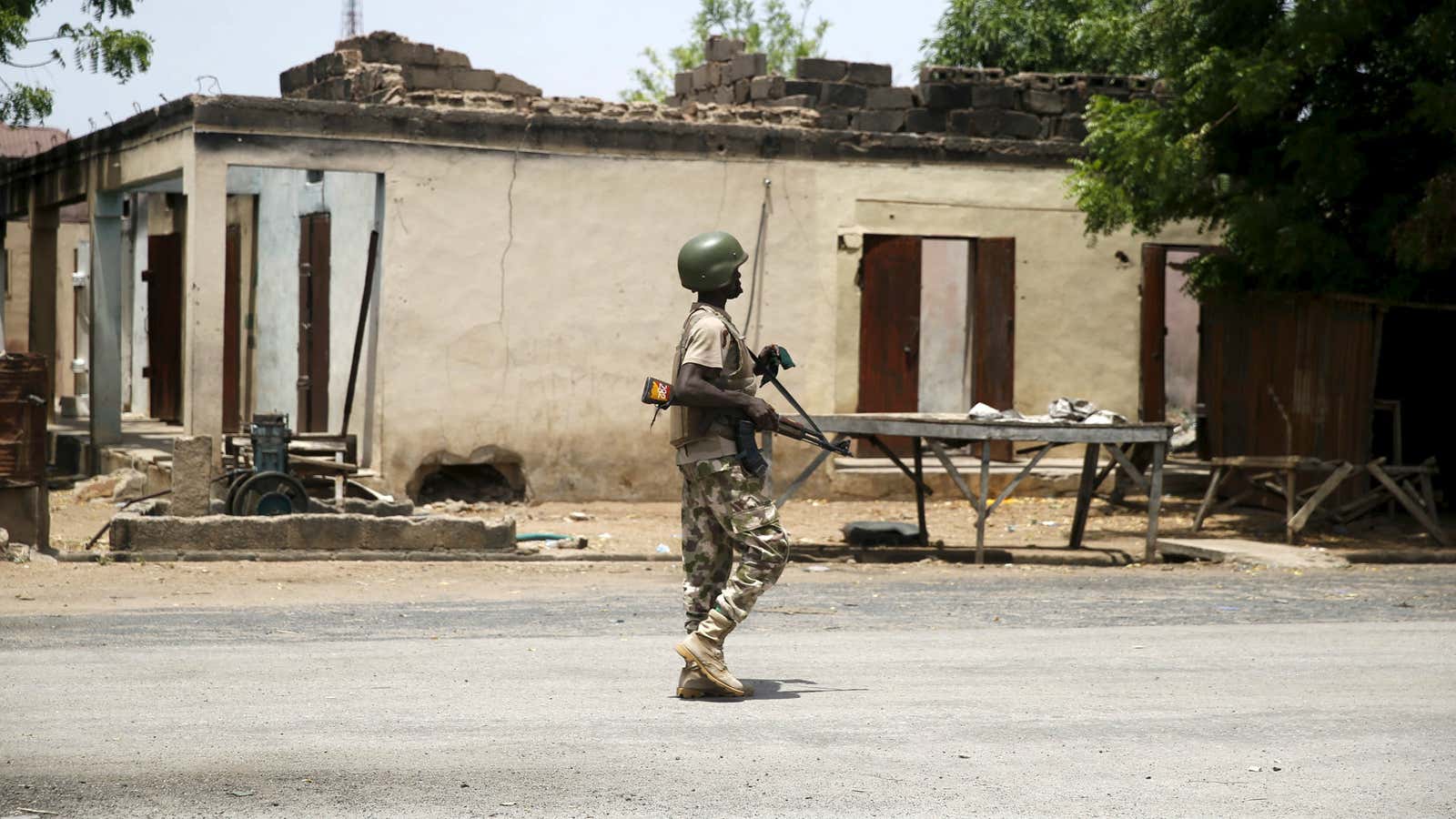Nigeria’s defense ministry says the radical Islamist group, Boko Haram, which was responsible for thousands of deaths last year alone, is looking to lure more members into its ranks by offering loans to “unsuspecting youth” in Nigeria’s troubled north-east region.
In a statement released Wednesday (April 20), the army said the group has “resorted to providing loans to young entrepreneurs and artisans in the North East as a way of inducing them for recruitment.” With most of the economy in Nigeria’s north-east decimated over the last few years as a result of attacks by the group, the allure of capital may be a strong pull for young people in the region. The area has struggled with unemployment as businesses have shut down or been destroyed by the group.
Boko Haram tactics seek to take further advantage of this situation. The low levels of literacy in Nigeria’s north-eastern region combined with its economic struggles have left large swathes of young, impoverished and uneducated people easy prey for the group’s radical agenda.
Beneficiaries of loans, often vocational entrepreneurs, are provided with the “option of either joining the group or risk being killed if they fail to pay the loan as at when due,” something that likely to occur as ”the payment has been surreptitiously programmed to fail,” the ministry says.
The army sees the loan tactic as further sign that the group has weakened under pressure from a recent regional offensive, leaving it “desperate to recruit more people into their ranks and files.” The group has resorted to more guerrilla tactics in recent months, stepping up its deployment of child bombers, 75% of them girls.
It’s also increased its use of suicide bombings as a tactic, carrying out 151 in 2015, compared to 32 the year before.
